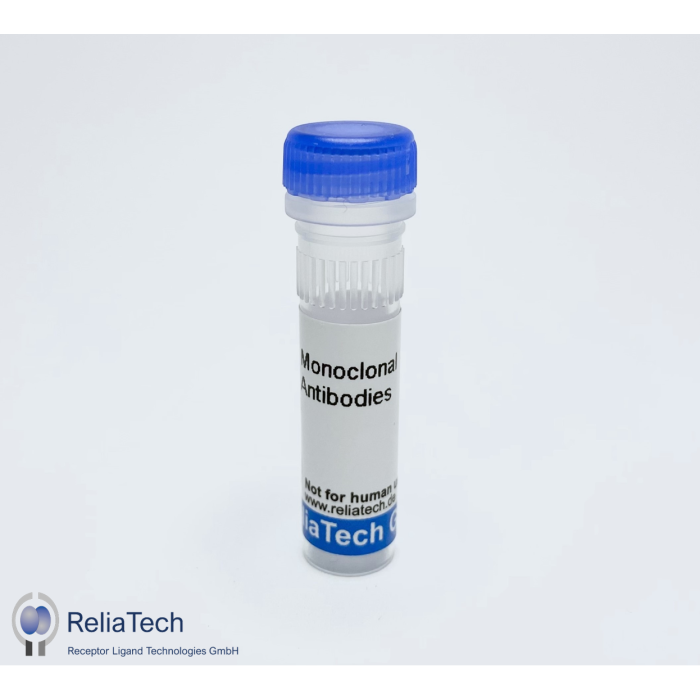Description / anti-human TIE-1 monoclonal antibody Biotin-conjugated
Tie-1/Tie and Tie-2/Tek are receptor tyrosine kinases with unique structural characteristics including two immunoglobulin-like domains flanking three epidermal growth factor (EGF)-like domains, followed by three fibronectin type III-like repeats in the extracellular region, and a split tyrosine kinase domain in the cytoplasmic region. Tie-2 is involved in vascular stabilization and remodeling. Although less well understood, Tie-1 may also act as an ANG receptor, possibly in complex with Tie-2. Human Tie-2 cDNA encodes a 1124 amino acid (aa) residue precursor protein with an 18 residue putative signal peptide, a 727 residue extracellular domain and a 354 residue cytoplasmic domain. Tie-2 is a receptor for the angiopoietin (ANG) family: ANG-1, ANG-2, and ANG-3 (mouse)/-4 (human). Ang-2 has been reported to act as an antagonist for Ang-1. Mice engineered to overexpress Ang-2 or to lack Ang-1 or Tie-2 display similar angiogenesis defects.
More Information
| Size | 50 µg |
|---|---|
| Source | Mouse |
| Isotype | IgG1 |
| Biological Activity | ELISA: Use at 1-15 µg/ml. |
| Clone Nr. | (#6F12) |
| Species Reactivity | Human |
| Formulation | lyophilized |
| Buffer | PBS, 50x BSA + 0,02 % sodium azide |
| Reconstitution | Centrifuge vial prior to opening. Reconstitute in sterile water to a concentration of 0.1-1.0 mg/ml. |
| Stability and Storage | The lyophilized antibody is stable for at least 2 years at -20°C. After sterile reconstitution the antibody is stable at 2-8°C for up to 6 months. Frozen aliquots are stable for at least 6 months when stored at -20°C. Addition of a carrier protein or 50% |
| Preparation | The monoclonal antibody was produced with the help of BALB/c mice using recombinant human soluble extracellular TIE-1 as the immunizing antigen. Mouse IgG1 antibody (#6F12) from hybridomas was purified from cell culture supernatant by Protein G chromatogr |
| Antigen | recombinant human soluble extracellular TIE-1 |
| Application | ELISA |
| Synonyms | TIE1; TIE; JTK14 |
| Uniprot ID | P35590 |
| Protein RefSeq | NP_005415 |
| mRNA RefSeq | NM_005424 |

